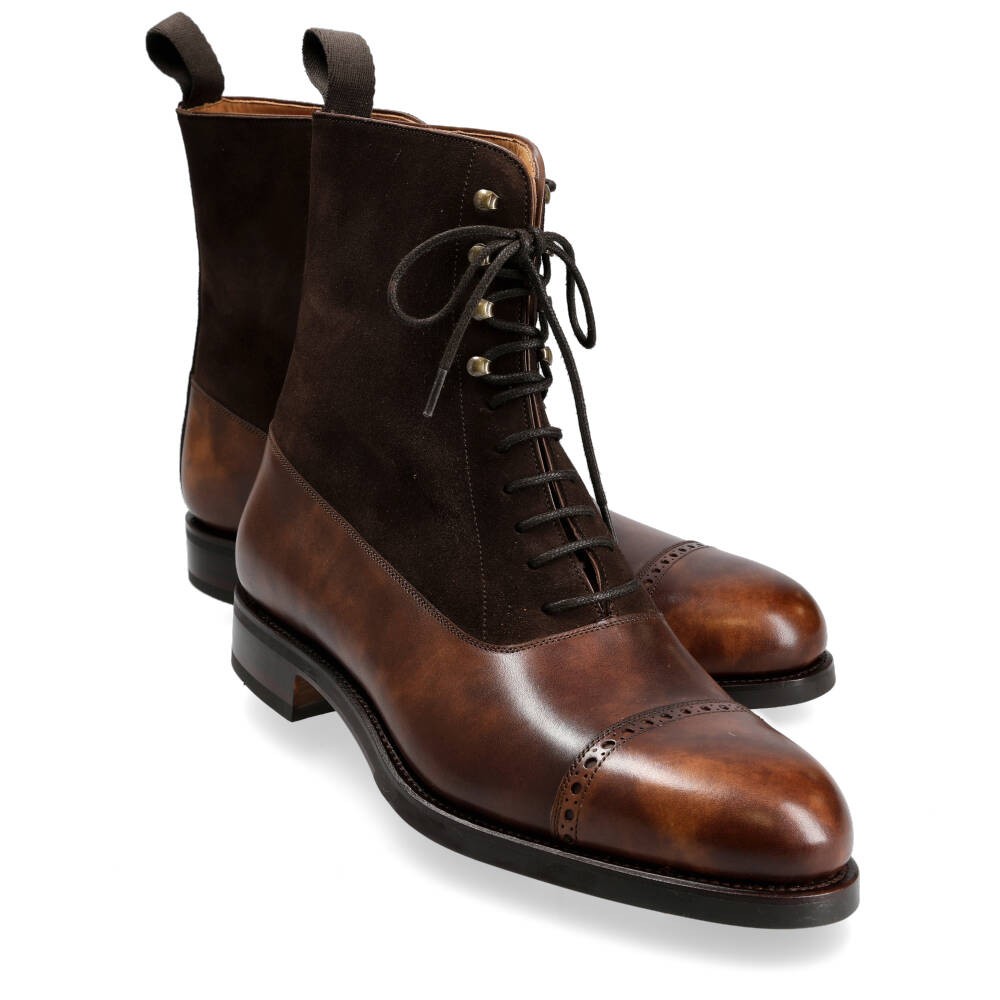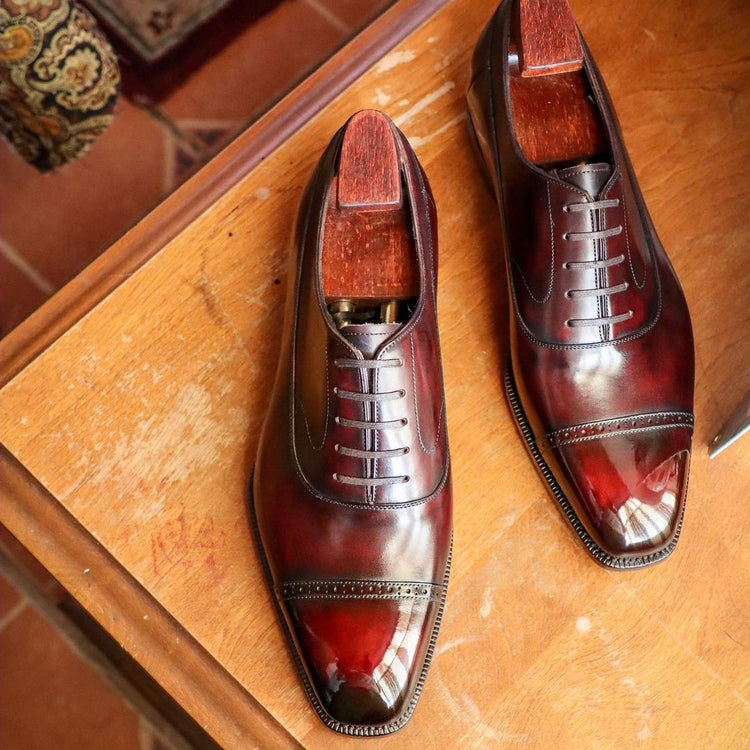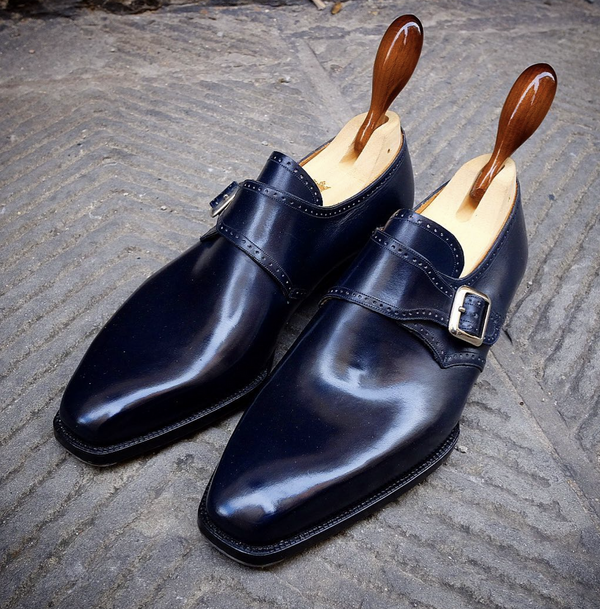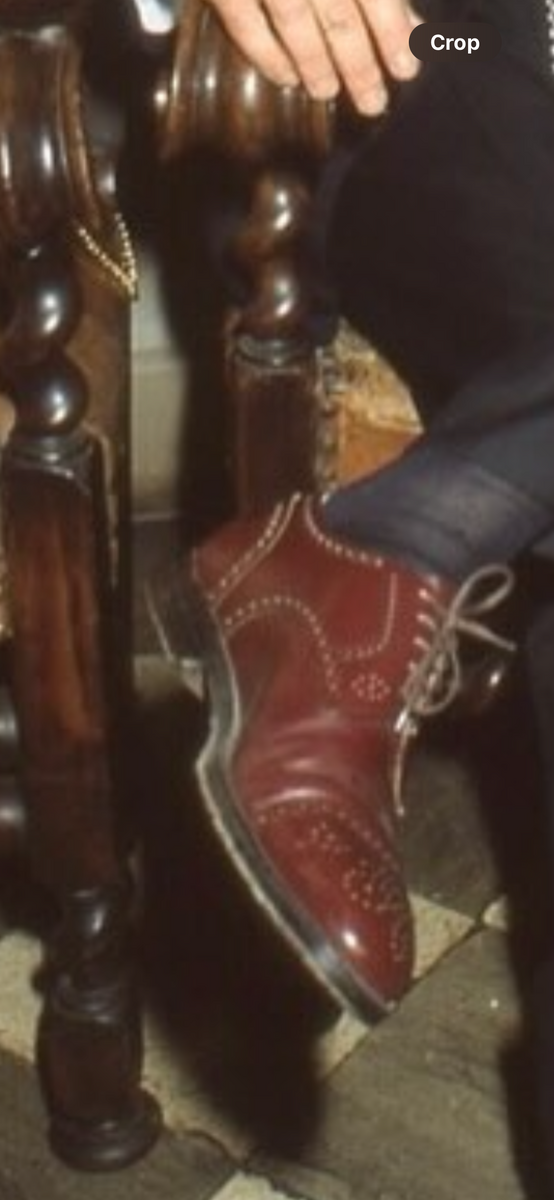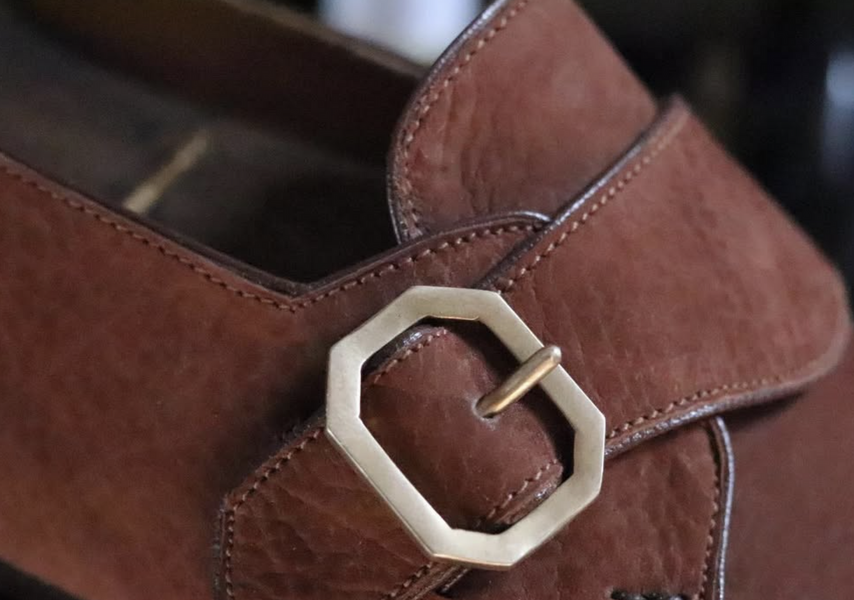w.efelaborde
Member
- Joined
- Aug 25, 2022
- Messages
- 18
- Reaction score
- 94
My exact feeling: if I go bespoke, I expect the most accurate execution, besides excellence in materials and construction. I wouldn't be happy with those shoes, as much as I like style and leather.
I'm sorry that you both feel that way.. I was hoping to sway your opinion otherwise.
Before I continue, I attach a picture of my own work for this technique.
I also have to say I have no ties with the makers of those shoes or the outworker who made them. But I feel sympathy for colleagues.
As a maker I find your position very intimidating and lacking a certain 'insouciance'. To stop at the welt stitching, is to risk missing the lovely folded piece over the back seam, the square hand stay stitch details, the skin stitched apron and the refined welt stitch. All unique details, difficult to execute well (which is the case here) - and most of all signalling every highest intention.
In conversation amongst the trade, we notice the demise of that reverence for "the art and mystery of the shoemaker".
The work here is cast in a cold glare and intense scrutiny, but this is not meant to be so. I don't believe the guy who stitched this shoe ever thought it would be examined like a competition piece.
The prime flaw I perceive with the conversation taking place here is that perhaps many of its participants lack one crucial source of knowledge: the experience of manual work.
The experience of hard toil at some stage in life and the physical difficulties which need to be surmounted to produce this work.
They cannot be blamed, modern life is about avoiding anyone the necessity for this experience. But that experience, which even a lord would have encountered in past lives, working on some part of his estate - would have made for common ground in understanding just how difficult to achieve this result is, and how much appreciation there should be for it - which also makes the very minor flaws so absolutely trivial.
I find it a bit of a shame that the audience and customers here don't seem to possess much of that sense of romance anymore, that realisation that human hands could even make such things with only the help of a few tools..



